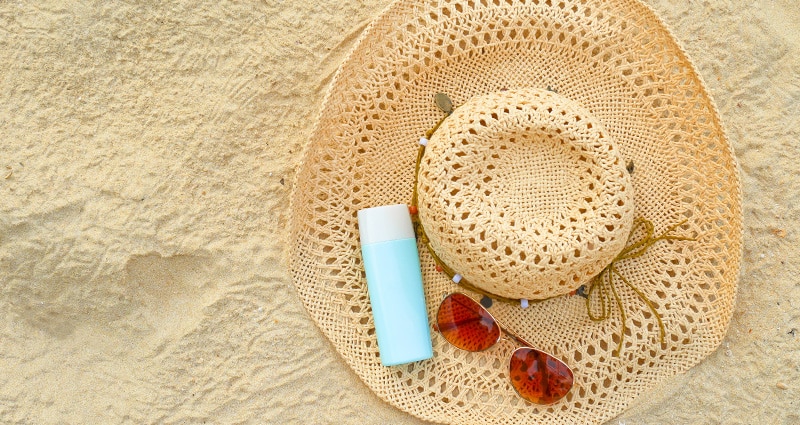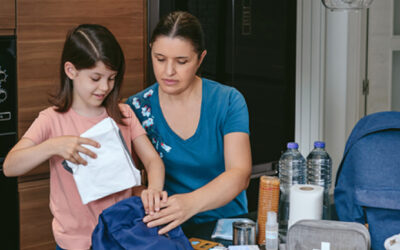This summer, if you or a loved one receive cancer treatment, know how your body’s response to sun exposure may be different than usual.
Cancer’s effects on sun exposure depend on the type of cancer you have. People who have been diagnosed with melanoma or another skin cancer are at an increased risk of developing a secondary skin cancer — especially after excessive sun exposure.
Cancer treatment side effects also impact the way sun exposure affects people with cancer. Photosensitivity (increased susceptibility to sunburn) is a common side effect of chemotherapy. That increased photosensitivity heightens additional cancer risk since getting a sunburn raises your chance of developing skin cancer.
Is Hot Weather Bad for Cancer Patients?
Some chemotherapy treatments can cause dehydration. Additionally, some side effects of chemotherapy, like vomiting and diarrhea, can cause dehydration.
Because they may already be at higher risk of dehydration due to their treatments, people who are receiving cancer care should avoid being outdoors for too long on hot days. Hot weather increases your body temperature, which makes you sweat more. The more you sweat, the faster you become dehydrated.
If you have to be outside on a hot day, staying hydrated by drinking plenty of fluids, such as ice water or low-sugar sports drinks, can reduce your risk of becoming dehydrated and suffering heat stroke.
What Are Some Sun Safety Tips for Cancer Patients?
One side effect of radiation therapy is that the skin can be easily irritated by the sun. Because both chemotherapy and radiation therapy can make your skin more sensitive to damage due to sun exposure, if you have cancer and are receiving treatments be sure to:
- Cover your skin with sun-protective clothing — Keep skin out of direct sunlight, especially parts of the skin targeted directly with radiation therapy. Wear loose-fitting clothing to stay cool and wear a wide-brimmed hat to keep the sun off your face.
- Stay in the shade when outdoors — Avoid direct sun exposure whenever possible when you’re outside. The less you expose your skin to the sun’s ultraviolet (UV) rays, the better.
- Wear sunscreen or sunblock — It’s possible to get unwanted sun exposure even in the shade or on cloudy days. Because of this, you should wear sunscreen or sunblock on exposed areas of skin when you’re outdoors.
- Avoid tanning beds — Tanning beds emit both UV-B and UV-A rays, which can damage the skin and increase the risk of skin cancer.
Why People Receiving Chemotherapy Should Avoid Too Much Sun Exposure
You may have heard sitting in the sun is good for people with cancer because sun exposure can help boost vitamin D levels.
However, sun exposure should be avoided whenever possible while undergoing chemotherapy. Because chemotherapy causes photosensitivity, even just a few minutes of unprotected sun exposure can result in a sunburn. Depending on how your treatment has you feel, you can fortify your diet with extra sources of vitamin D, like with oranges, eggs or mushrooms.




